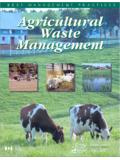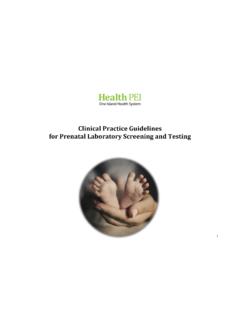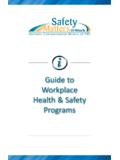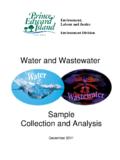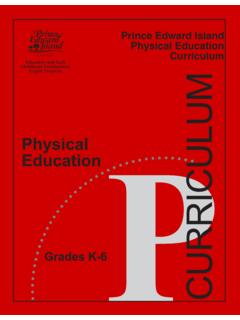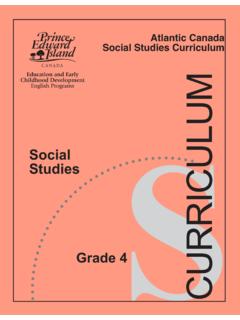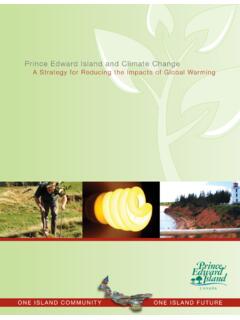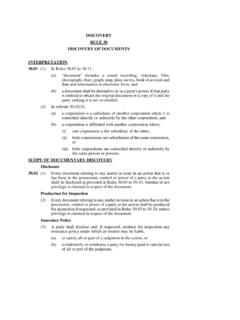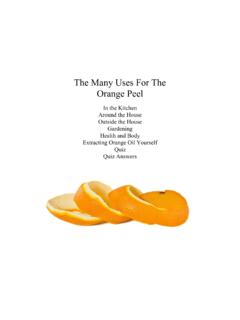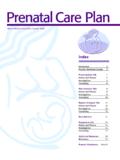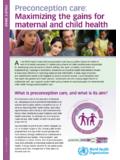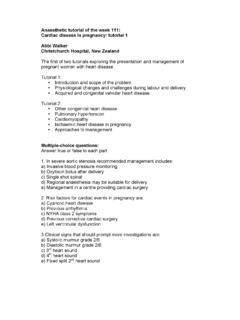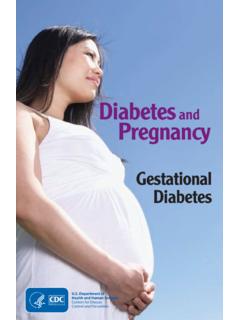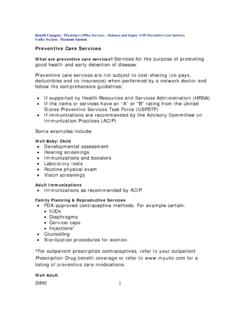Transcription of VARICELLA ZOSTER - (CHICKEN POX) - AND …
1 1 VARICELLA ZOSTER - ( chicken POX) - AND PREGNANCYR ecommendation:Ask all women, at their first prenatal visit, whether or not they have had chicken the woman s preconception VARICELLA status is uncertain or not known varicellaserology should be done to determine immune status. Women with a positive historyof VARICELLA include those who have had VARICELLA , those who have had a positive varicellaserology, or those who have received VARICELLA vaccine. Women who are found to be non-immune should be vaccinated in the postpartum period. (Note: There are specialconsiderations for Rh negative women - see page 2 for postpartum immunizationdiscussion.)In a non-urgent situation it may take up to a week to receive results of testing for immunestatus (specimens are sent to Halifax). If there has been a significant exposure to chickenpox, and immune status is uncertain, a request can be made to expedite the process bycontacting the microbiology lab and explaining the non-immune pregnant woman should be advised to contact her Doctor immediately ifshe is exposed to chicken pox.
2 Because the risk of complications may be greater inpregnant women than in other adults, administration of VARICELLA ZOSTER immunoglobulin(VZIG) is recommended for non-immune pregnant women with a significant is to be given within 96 hours of exposure to chicken pox. There is no assurancethat administering VZIG to a pregnant woman will prevent congenital malformations inthe fetus, but it may modify VARICELLA severity in the pregnant woman. VZIG is also indicated for newborns of women who developed VARICELLA within 5 daysprior to delivery or within 2 days following delivery. NOTE:Oral acyclovir is not recommended particularly for pregnant women withuncomplicated VARICELLA , because the risks and benefits to the fetus andmother are unknown. Some experts, however, recommend oral acyclovirfor pregnant women with VARICELLA , especially during the second and thirdtrimesters.
3 Intravenous acyclovir is recommended for the pregnant patientwith serious complications of ZOSTER - chicken POX - EXPOSURE AND PREGNANCYV aricella ZOSTER virus was found to increase the baseline risk of congenital abnormalities by infection occurred before 20 weeks gestation. Congenital VARICELLA embryopathy ischaracterized by limb hypoplasia, skin scarring, neurologic abnormalities (microcephaly, mentalretardation, cortical atrophy, dysfunction of bowel or bladder sphincter) and eye defects(cataracts, microphthalmia chorioretinitis). Approximately 80% - 95% of women with no history of chicken pox infection are in fact2 June AND LACTATIONV aricella vaccine should not be administered to pregnant women, because the possible effectson fetal development are unknown. When post pubertal females are immunized, pregnancyshould be avoided for at least 1 month (4 weeks) after immunization.
4 A pregnant mother or otherhousehold member is not a contraindication for immunization of a child in the household. Immunization with VARICELLA vaccine during the postpartum period while an infant isbreastfeeding should be encouraged at any time after delivery. If there are VARICELLA lesionson the breast after receiving the vaccine, the lesions should be covered during breastfeeding butthere is no reason to stop breastfeeding if the mother gets some lesions. Immune Globulin. Whether Immune Globulin(IG) can interfere with VARICELLA vaccine-inducedimmunity is unknown, although IG can interfere with immunity induction by measles additional data, VARICELLA vaccine (as with measles vaccine) should be withheld for 5 months after receipt of any form of IG or other blood product. Postpartum immunization for rubella or varicella1. All women who are rubella non-immune should be vaccinated in the postpartumperiod before hospital women who are VARICELLA non-immune should be vaccinated in the postpartumperiod but the timing is dependent on the Rh who are Rh positive, or Rh negative but did not require Win Rho , should receive rubella orvaricella vaccine before hospital discharge, if required.
5 For women who are Rh negative and receivedWinRho, rubella vaccine should be given before hospital discharge if required, but the varicellaimmunization should be delayed (see below). Rubella: There is a possibility that WinRho may interfere with achieving immunity fromvaccines. However, the benefits of preventing fetal rubella infection far outweigh the possiblerisks of WinRho interfering with vaccine acquired immunity to rubella. Women who receivedboth WinRho AND rubella vaccine before hospital discharge should have their rubellaimmunity checked at their six week postpartum : The fetal risks from maternal VARICELLA are small. Therefore, women who requireWinRho and are VARICELLA non-immune should Not receive VARICELLA immunization beforehospital discharge for two reasons:1) since VARICELLA vaccine is given to confer maternal immunity, the risk of WinRhointerfering with vaccine acquired immunity should be considered, and 2) current VARICELLA serology may not detect vaccine acquired immunity so theeffectiveness of early VARICELLA immunization cannot be who are VARICELLA non-immune and received WinRho before hospital dischargeshould receive their first dose of VARICELLA vaccine at their 6 week postpartum visit and theirsecond dose 4 or more weeks later.
6 We estimate that this exception will apply to 1% - 2% of all postpartum women each : Reproductive Care Program of Nova Scotia. (July 2003) Changes to Antenatal Laboratory Screening andrelated prenatal and postpartum issues
